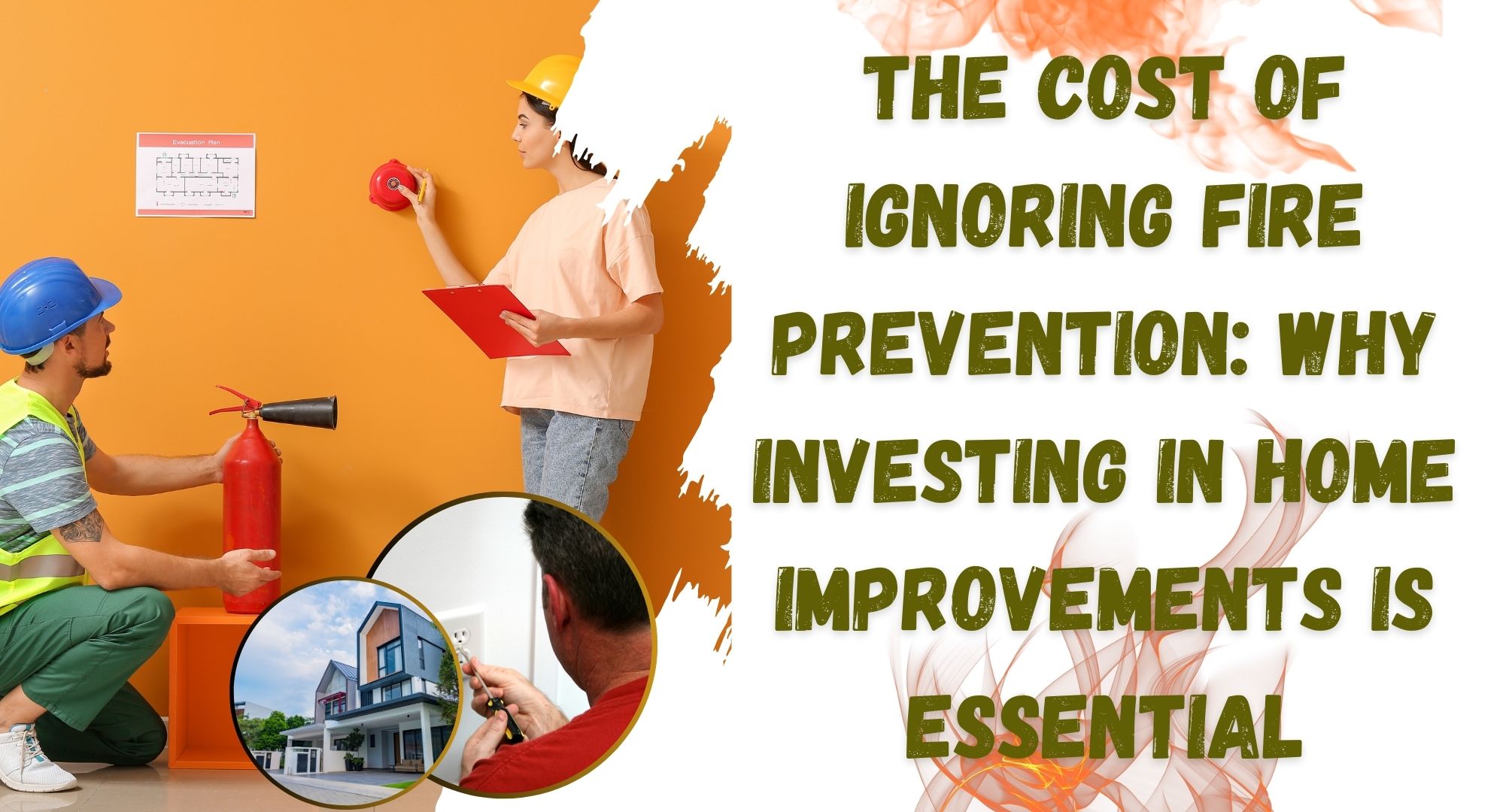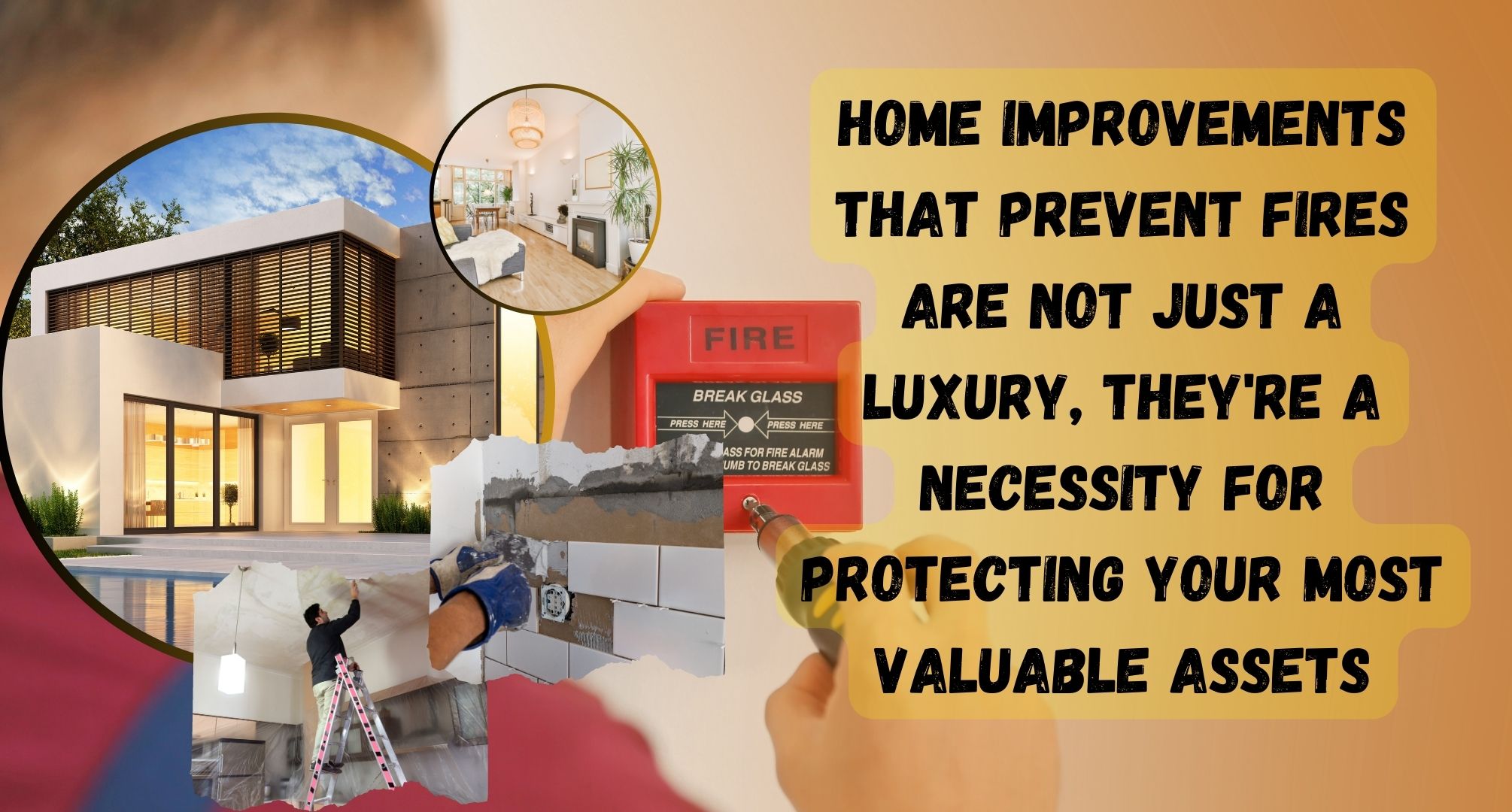As they say, “Home is where the heart is,” most of our valuable possessions are also kept there. Although our homes ought to be our safe havens, they can sometimes put us in serious peril. Home fires can start for a variety of reasons, and they can seriously harm people as well as their homes and property. Neglecting to avoid fires in homes can be expensive, both emotionally and financially. This essay will discuss the price of ignoring fire prevention and the importance of making home upgrades.

Enhanced Fire Damage Risk
Home fires can occur for a number of causes and are more frequent than we might realize. Cooking mishaps, heating system issues, electrical problems, and smoking are some of the most frequent causes of house fires. The National Fire Protection Association (NFPA) reports that between 2014 and 2018, there were an estimated 354,400 house structure fires in the United States that required the assistance of fire departments. 2,620 civilian deaths, 11,220 civilian injuries, and $6.9 billion in direct property damage were all caused by these fires annually on average.
A house fire can seriously harm a home’s structure as well as its occupants’ assets and personal property. Homeowners and their family are frequently left without a place to dwell after their homes are entirely destroyed. It might take a long time to recover from the emotional anguish of losing a home and treasured goods, which can be enormous.
Financial Damage from Fire Costs
Fire damage can be quite expensive financially. It can be costly to renovate or rebuild a damaged property, and homeowners must take other factors into account as well. Homeowners might also need to replace their valuables and personal items if a fire damages or destroys them. The price of medical care for burn injuries can also be very significant.
Though they may believe they are shielded from the financial effects of a home fire by their insurance coverage, homeowners should be aware that these plans include restrictions and exclusions. Fire damage is often covered by home insurance policies, though there may be a cap on the amount of protection offered. Additionally, some types of damage, like as damage from earthquakes or flooding, may not be covered by insurance coverage. To make sure they have enough coverage in case of a fire, homeowners should frequently evaluate and renew their insurance plans.
Improvements to the Home Can Prevent

The best method to mitigate the monetary and psychological consequences of fire damage is to prevent home fires. Homeowners can take a number of precautions to avoid home fires, such as:
- Installing and routinely checking smoke detectors on each story of the house
- Putting a fire extinguisher in a place that is easy to get to
- Ensuring that all electrical devices and equipment are in excellent operating order
- Regular chimney and flue cleaning
- Not allowing food to cook when unsupervised
- Avoid smoking inside
Homeowners can also spend money on upgrades to their homes that can lower the danger of house fires in addition to these preventative steps. Among the housing upgrades that can stop fires are:
- Setting up a sprinkler system
- A smart home security system upgrade
- Replacing outmoded electrical and wiring systems
- Using fire-resistant roofing materials in place of flammable ones
- Swapping out outdated appliances for more modern, energy-efficient models
Another important factor in preventing home fires is routine maintenance and examination of home systems. To make sure that their plumbing, heating, and electrical systems are in good working order, homeowners should have a professional evaluate them at least once a year.
Return on Fire Prevention Investment
Homeowners can ultimately save money by making an investment in fire prevention. It may initially seem expensive to make home upgrades to avoid fires, but it’s crucial to weigh the price of fire protection against the possible cost of fire damage. The price of home upgrades may be far lower than the expense of restoring a damaged home, replacing personal items, and receiving medical attention. Additionally, by spending money on fire protection, homeowners can reduce their insurance premiums and deductibles. Homeowners that have sprinkler systems, smoke detectors, and other fire safety measures installed frequently receive savings from their insurance company.
Aside from cost savings, making an investment in fire protection can give homeowners peace of mind and the assurance that they are doing everything possible to protect their families and themselves. Homeowners who have taken precautions to prevent fires should rest easy knowing that they have done everything possible to protect their homes and loved ones. A home fire can have a major emotional toll.
Neglecting to avoid fires in homes can be expensive, both emotionally and financially. The cost of repairing or reconstructing a damaged home can be substantial. Home fires can result in significant damage to homes, properties, and lives. Due to exclusions and limits in insurance policies, homeowners who have insurance policies may not be completely shielded from the financial effects of a home fire. The best method to mitigate the monetary and psychological consequences of fire damage is to prevent home fires through home upgrades and routine maintenance. Homeowners can make long-term financial savings by making an investment in fire prevention, as well as gain peace of mind from knowing that they are taking precautions to protect their families and themselves.
